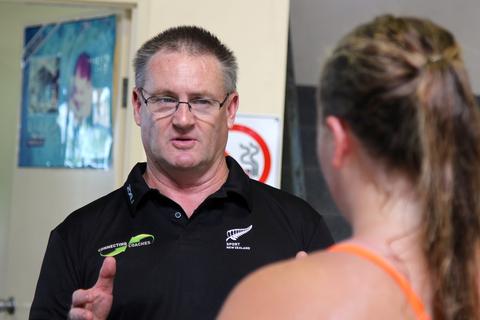Ten Reasons Why Change is so Hard to Introduce in Sport

Change is one of the most talked about aspects of sport.
But change is also one of the hardest things to actually introduce successfully and sustain in any sporting environment.
Why?
Because people who introduce change are often seen as radicals or “ratbags” or people who know nothing about the sport or people who don’t understand the sport’s culture or similar negative label.
Yet, the most successful people in the sport and corporate world know that change is the energy – the driving force behind success and without it, sporting organisations – and indeed athletes and coaches will never realise their full potential.
Here are the ten reasons why change is so hard to introduce in sport.
Fighting for Change.
Change innovators in sport have to fight through three phases to make a real difference:
- Ridicule – Real innovators, lateral thinkers and change drivers have to first face the conservative thinkers in the sport who will label their push to change as stupid, ill informed and ridiculous.
- Resistance – If the idea gets through Phase 1, it then meets hard opposition from people who are benefiting from the current thinking and who will fight hard to resist new ideas and any challenge to their position and beliefs.
- Acceptance – finally if you can get through the days, weeks, months or even years of fighting, political maneuvering, back stabbing and other obstacles you have to overcome, you can introduce real change and ensure the sport progresses.
There are two true but conflicting statements I can confidently make about competitive sport:
- Change is critical – it is essential to survive. In competitive sport, the faster you can accelerate your rate of change – faster than your opposition – the more likely it is you can sustain competitiveness and win but…….
- Sport is incredibly conservative. It is more resistant to change than almost any other area of society and some people will resist change to the point of seeing the club or sport fail if it means changing their beliefs and their position.
How can people who profess professionalism possibly defend this conservative position?
Success is a Moving Target.
In sport, more than most other human endeavours, “success is a moving target”. Athletes, coaches and teams who are first at introducing new ideas and innovations and usually the winners, the champions, the gold medalists, the premiers – the success stories.
So, if change is the life blood of being successful in competitive sport, why are so many people so determined to “open an artery” and let the sport bleed to death rather than embrace the change process?
The Ten Change Killers.
- “It’s different here” – The most common “anti-change” comment you hear when you try to change things in sport is “it’s different here”: meaning this team or club or sport is different to the rest of the world and doesn’t need to change, evolve or improve. Rubbish!
- “You don’t understand the culture of this sport” – whilst it is true that all sports and indeed all teams have a unique culture, what is also true is that the core principles of success apply to every sport and team regardless of their culture.
- “We don’t have the money to change” – another common “anti change” comment. My experience working with hundreds of sports in 25 countries is that money is rarely the real issue. The most common impediments to effective change all over the world always has been and still are personalities (i.e. people standing in the way of change) and politics.
- “We’re on top so we don’t need to change” – it is harder to sustain success and repeat winning than it is to do it a single time so logically, the people most in need of change are those who have been successful. They are the people most likely to believe they have hit on the “secret formula to success” and will resist change to the “secret formula” harder than any group.
- “That’s not the way we do it here” – a painful destructive mindset which often permeates when former players and coaches from the sport’s “glory years” sit on the Board and believe the solutions to the Club’s current problems lie in going back to the past.
- “You’ve never played the game” – there is no doubt that current and former players can add significant value to the quality of leading any team, but rejecting the ideas, suggestions and expertise of anyone who hasn’t played the game is a guarantee of failure. It’s like saying the only people who can listen to music must be musicians or the only people who can go to art galleries must be artists.
- “We need to introduce change slowly” – a great idea……..if you want to improve slowly and let your competition get away from you.
- “We have this dominating, hard headed, old Chairman who refuses to change – we will never get anything going” – guess what? There is one of these in every sport, in every team, in every country in the world. The “old administrator” who has been in a position for 30 years and will do anything to cling to power. Unfortunately this is a fact of life – get over it, work around them and get on with it.
- “I can’t get people to buy into the need to change” – another fact of life. Greek Philosophers BC have written about peoples’ resistance to change – it is one constant in a universe that thrives on change. A fundamental skill of great leaders is to convince people that change is necessary and to get them to support the new direction.
- “It’s too difficult to change” – No it’s not. Everyday things change. Technology. The way we eat. The way we travel. The way we communicate. Everything is constantly changing and evolving. If you can’t change, then you are out of pace with the rest of the Universe.
Summary:
- Think of the great people in sport, in life, in science, in art, in literature – why do we admire and respect them? Because they were different and difference means change: uniqueness is an advantage: being the leader in the introduction of change is a prerequisite for greatness.
- Change is uncomfortable for most people but in elite sport it is as essential as having a training field, a quality training program and the right equipment if you want to be successful.
- If you want things to change – be prepared to fight, fight hard, fight long but fight fair. Let the conservative thinkers in your sport do the dirty stuff, the name calling, tell the lies etc – just keep fighting a good, hard, clean fight and in the long run, you will win.
Wayne Goldsmith



2 Comments
Mick · June 7, 2009 at 7:45 pm
I wonder if it took so much effort to introduce courses in change management at universities!
Wayne Goldsmith · June 25, 2009 at 10:33 am
Thanks Mick.
As an old friend of mine said recently, “Resisting change is like trying to hold your breath. The better you do it, the more likely it is you will die!”
It is amazing that everyone thinks change is important, they all talk about embracing change, they all admit it is critical in success in life – AS LONG AS IT DOESN’T HAPPEN TO THEM!
WG